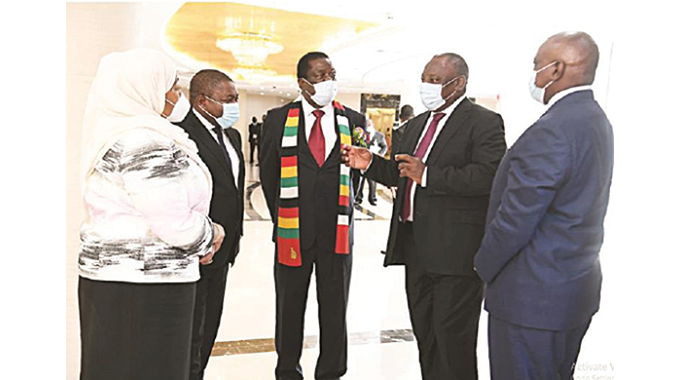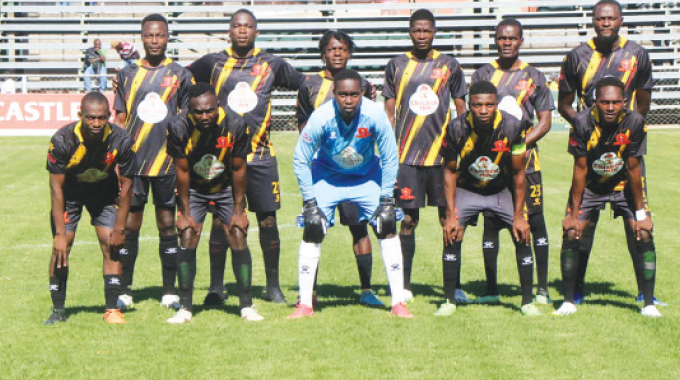Football declining rapidly

Dingilizwe Ntuli, Sports Editor
IT’S difficult to dispute that Zimbabwean football is in an era of rapid decline despite its continued popularity.
While there hasn’t been any league action this year due to Covid-19 restrictions that prohibited large gatherings and sporting events, it’s still apparent that the game’s decline is accelerating.
And nothing provides better evidence than performances of junior national women’s and men’s teams in the recently held Cosafa tournaments in South Africa.
Unfortunately, rampant bungling by the game’s national administrators always translates to performances on the field, and there can be nothing more embarrassing than just grouping people that haven’t trained for eleven months and sending them to an important tournament disguised as a national team.
That’s what happened with the national Under-17 girls’ side that took part in the Cosafa Under-17 tournament in South Africa and it was not a surprise that they were hammered 10-1 by Tanzania in one of their games.
In fact, they conceded 19 goals in three matches. As embarrassing as it is, one can’t blame the girls because they were never ready for such a tournament. They had been under lockdown at home since April when they were suddenly called into camp without having kicked a ball for close to a year.
The criteria used by the technical staff to call them up remains as mysterious as in the pre-Covid years. Everything about junior football in Zimbabwe is now shrouded in mystery.
Further embarrassment was piled on the country when the national Under-17 boys’ team was expelled from the Cosafa tournament after one or more players failed an MRI scan, suggesting that they may have been overage.
Although virtually nothing is being done to help develop junior football at every level, it would appear that there is some form of selfish benefit certain officials, coaches, agents, clubs and “academies” derive from selecting ill-prepared players into national teams and sending them to a tournament such as Cosafa.
While we are mourning about the scorn our junior national teams brought on the nation, our eastern neighbours Mozambique are revelling in the aftermath of clinching the Cosafa Under-20 men’s tournament and qualifying for Under-20 Afcon finals.
The Young Warriors flattered to deceive at the same tournament when they almost shocked hosts South Africa only to concede an injury time goal to draw 2-2 in their opening match. They went on to lose 2-0 against Mozambique in their next match, and although they beat Lesotho in the last group game, they were eliminated from the tournament.
Just how did Mozambique do it when a few years back they were literally whipping boys at such events and we were almost tournament favourites with South Africa and Zambia.
Although we have never openly said it, we never even considered them good enough as competition for a Young Warriors’ training session. Fixtures against Mozambique were generally viewed as byes even by local football supporters.
But tables have turned now and Mozambique seems to be on the ascendancy in junior football while we are heading south fast.
Just what have they done right that our football leadership and coaches are failing to grasp?
Theoretically our coaches are making the right noises, but are they doing enough to help address the shortcomings they have correctly identified.
Young Warriors coach Tonderai Ndiraya bemoaned the players’ failure to implement basic football principles such as striking the ball and shooting at goal.
But do these basic principles only lack in Young warriors’ players and other junior teams or it’s an overall problem in the Premier Soccer League.
We have continuously witnessed players failing to trap the ball in just about every match in the PSL and the question is who should be teaching them such basics?
Some coaches said players were being burdened with tactics from an early age instead of being taught basics.
They also blame lack of equipment and proper facilities to groom well rounded players, but how many of these coaches have tried to adapt to the prevailing environment instead of always making comparisons with other countries.
Why is it that in the 1980s and 1990s we had good established junior teams?
League teams had well defined junior structures and most of the players went on to become good players at senior level.
For example, Highlanders had good junior structures in which the great Peter Ndlovu, his late brother Adam, the late Benjamin Nkonjera and the late Makheyi Nyathi, among others, came through.
These players were not exposed to the equipment and facilities, whose lack of, present-day junior coaches blame for the deterioration.
Rather greed and opportunism seem to have seeped into grassroots development.
The likes of Ndlovu, Nkonjera and Nyathi developed their skills in street football, in the “dust and the dirt” that Ndlovu referred to in a soap advert in the 1990s.
This was in reference to Makokoba suburb where Ndlovu grew up and became a star, first on the streets, then at Mzilikazi High School, Highlanders, the Young Warriors, Under-23 national team, the Warriors, Coventry City, Sheffield United in England before hanging his boots at Mamelodi Sundowns in South Africa where he is the current team manager.
There wasn’t much pressure in street football and players developed to love the game in their own particular way.
They didn’t burden themselves with the technical and tactical approach that coaches try and foist on eight-year-olds today.
Ndlovu’s generation played football for fun and hence developed the game’s skills as a result, and those skills were further enhanced as they progressed through the age groups.
There was no requirement for primary and secondary school football coaches to possess Zifa coaching badges because football was just a fun sport for children.
Hence school was the next step of development and professional coaches recruited schoolboys already endowed with trickery and passion for the game to their respective clubs.
Sadly, street football no longer exists, leaving young players with virtually nowhere to hone their basics among their peers without a coach scolding them for failing to adapt to his theoretic tactics.
With this pressure of wanting to win at all costs, too much pressure is put on youngsters, and once the fun and love of the game is absent, they never develop to their full potential.
According to United Kingdom-based youth football coach and Footy4kids editor Steve Watson, development is long term and takes years of patience and coaches must back off and let the children play.
Watson says coaches must leave youngsters to learn to solve their own football problems on the pitch and to work it out for themselves before giving them the solution.
When this happens, they express themselves, have no fear of failure and play with imagination and skill.
By putting the children first and making it their game, they not only have great fun, but develop a passion for the game.
Are our junior coaches allowing the players to enjoy the game and develop passion for it, or put too much pressure on them because they too are engrossed in seeking the glory of producing the next Peter Ndlovu at all costs?











Comments